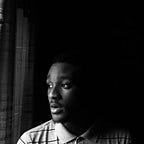Thoughts On Zach Snyder’s Justice League; An Ode to grief and godhood.
There’s a spirituality to Zack Snyder’s justice league. A four hour exercise in over-indulgence, punctuated by awkward dialogue and dizzying character arcs but laced with just the right amount of fan service to make it work. The once near mythic cut becomes blood and bone in a slightly distracting 4:3 aspect ratio, providing much of the context and soul that was stripped away in its Joss Whedon’s 2017 release. The spirituality is in Snyder’s notably auteur driven work. Justice league buries itself in much of the same themes as Man of Steel — edgy, gritty, rinsed, high contrast tones warped around a burgeoning existential crises — To be gods? Or not to be gods?
It worked for the introspective Man of Steel but does it work for a ragtag group of disgruntled individuals trying to save the world from destruction? Our protagonists are not merely heroes, they’re gods, living and breathing among us from entirely distant worlds. Worlds of grief, trauma, and pain. They’re burdened by it, transformed by it, and so they put on masks and suits, marauding in violence and destruction. In the DCEU, pain is the ultimate superpower, and the ordinary people? The fetishization of that pain, those with more of it can wade through otherwise superhuman feats. Such as the laughable Superman Vs Batman fight. It shouldn’t happen, Why does it? Because Batman has grit, and oh, a couple of fancy gadgets too.
Whenever civilians do find themselves lucky enough to breathe the same air as our heroes, the script has them stuck in near endless reverential gaze or incredulosity. Their helplessness is nothing more than an ego trip for our protagonists, vain theatrics that actual worldbuilding would solve. It’s almost as if to put the audience on cue that this is the time to wonder at our heroes’ might, all we’re left with is an uneasy self awareness. We don’t need a bunch of people to sing for Thor to be convinced of his godhood or to know that he’s a badass. His evolution from the arrogant and unworthy heir to god of thunder and protector of Asgard is all the prompt needed to get excited when his eyes spark their famous blue.
Taking cue from that scene in Snyder’s Man of steel where as Superman descends from the sky, a messiah of sorts, bridled in light, the people reach out to literally touch the hem of his garment. Lex Luthor’s creepy monologues in Batman V Superman, romanticizing the destruction of Metropolis as the battle between the “god of the night” and “the god of the day” Another scene from justice league, Diana saves a group of school children from gunmen. One of them asks her, “can I be like you someday?” It’s played off as a warm and light hearted moment. Unfortunately, to be like Diana is anything other than light hearted, which is why it’s so difficult to take seriously.
Bruce Wayne watches as his parents are murdered in cold blood, choosing to channel that anger into a life of crime fighting. Diana abandons her mother and people to fight alongside the man she loves, when he dies, she condemns herself to a life of protecting humanity, knowing fully well that she will outlive us all. Victor Stone loses his mother, his ambitions, and half his humanity in one night., forced to live as a half robot, half human contraption the rest of his life.
The psyche of these heroes is the major intrigue in assuaging the contrast between the MCU and DC. Our DC heroes are outcasts, crafted in Snyder’s edginess and darkness, all bound by burden manifest in a life dedicated to crime fighting. Everyone seems to be seeking some sort of redemption, Batman’s guilt over superman. Barry Allen’s degree in forensics and criminology following the wrongful imprisonment of his father. Lois Lane’s grief and struggling to go back to her work. WonderWoman and abandoning her mother and people. Victor and his relationship with his absentee father. Even our villain, Steppenwolf, is seeking his uncle’s (Darkseid) forgiveness after betraying him. He chooses Earth as the object of his redemptory strides, much like how our heroes’ work is in service to some burden. The only difference is, they’re the good guys.
It’s all precariously one note, boring even, the work of an auteur whose greatest instinct seems to be paraphrased in Hamlet’s Soliloquy — “To be or not to be? That is the Question. For whether tis nobler in the mind to suffer the slings and arrows of outrageous fortune, or to take arms against a sea of troubles, and by opposing end them.” The fortune here being their pain, and Snyder’s answer — to take arms.
The MCU works because it recognizes the uniqueness in each of its individual and sub-collection of stories. The Guardians Of the Galaxy, Antman, Thor, Iron Man, these franchises all have their own separate quirkiness and influences. Endgame builds as the collection of these idiosyncrasies without the antagonization of individual vision or the burdening of singular ‘genius’ unto its story.
The Snyder Cut does the opposite, as a result, the emotional payoffs that Endgame gave MCU fans are manifest as mere sympathy in Justice league. Is this all we should feel for the gods?
